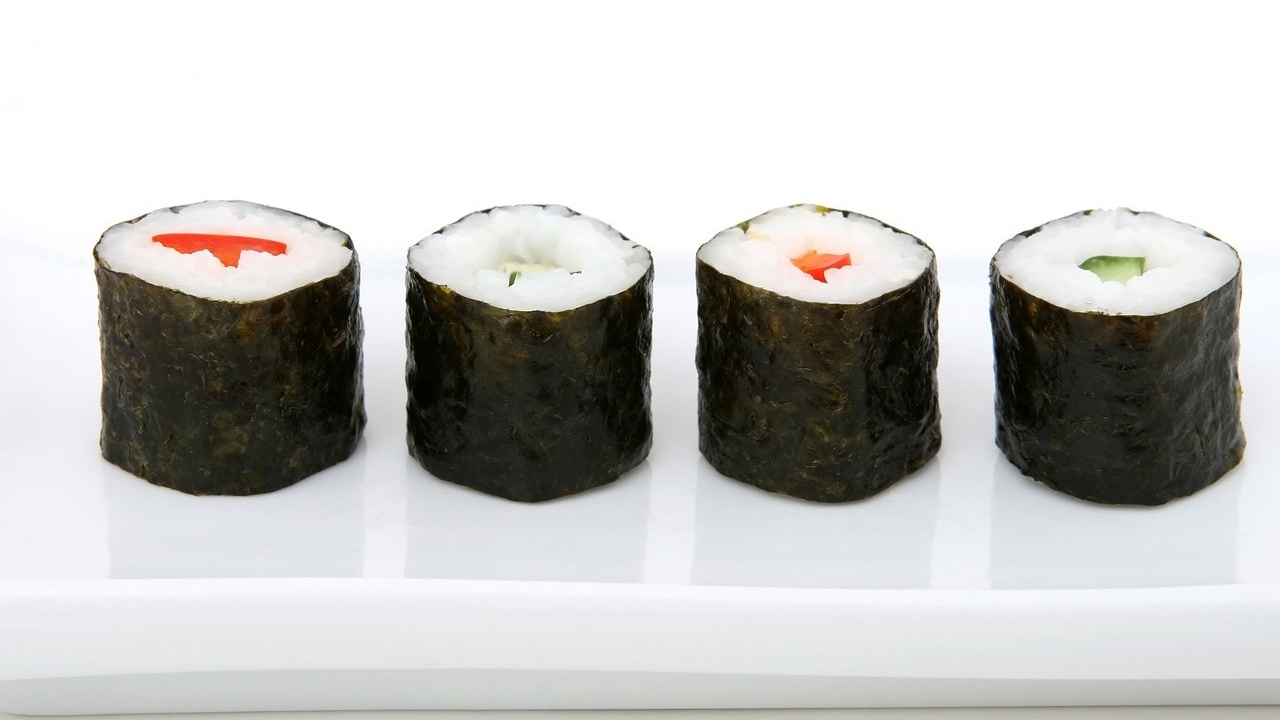
Seaweed – the superfood you need for calm energy
When I was in college and struggling to turn my health around, I read a nutrition book that suggested eating seaweed. So, being the “A-student” I am, I bought some nori sheets (sushi wraps), wakame, and crumbed dulse.
The first meal I had with a significant amount of seaweed, I noticed an instant feeling of relaxation. I kept eating it regularly because I immediately felt good whenever I ate it.
Turns out it wasn’t just in my head: seaweed, also known as micro algae or sea vegetables, is considered a superfood and an essential part of some Asian diets for thousands of years.
Some types of seaweed are considered medicinal in Traditional Chinese medicine to shrink goiters. Seaweeds are full of macro and micro-nutrients: vitamins A, C, D, E, K and calcium, magnesium, potassium, copper, and iron. It’s also the best real food source of iodine: a trace mineral that is essential for thyroid and breast health.
Newer studies are proving that there is a link between reduced risk of breast cancer and thyroid disease and increased dietary iodine. Here’s another link showing how in this sector of Korean women, the ones who ate more seaweed had significantly lower risk of cancer.
The average Asian person consumes 25 times more iodine – probably due to the prevalence of fresh seafood and seaweed in their regular diet – than the average American person. They also have roughly 1/3 the chance of breast cancer than Americans.
Q: “I already use iodized salt, so I don’t need any other source of iodine, right?”
Iodized salt was invented to reduce the incidence of goiters (thyroid gland enlargement) and low IQ in the US public in the 1920s.
Some conflicting research has shown that, while some people reflect improved health from the mass iodine supplementation, other people did not. “While the programs almost completely eliminated goiter, the prevalence of autoimmune thyroiditis increased in areas with iodated water or in those using iodized salt.” Synthetic iodine, as is found in iodized salt, is called "iodide." It doesn't confer the same health-benefits of real iodine food sources.
With seaweed, the side effects of using iodine alone disappear, as we see in places like Japan.
In our “modern” age, we seem to think we can circumvent nature and isolate the health-providing micro-nutrients from our food. Maybe it’s just the food itself – and its unique combination of all the smaller parts – that is healthy and not some isolated part of the food. Maybe we don’t need pharmacists and laboratories to be healthy; we just need to eat closer to what nature provides.
Q: “I hate the taste of seaweed / I don’t want to eat seaweed / I don’t think I can eat seaweed that much.”
Cool. I understand. Same here. I just take it in a tablet form:

Q: “I have a thyroid condition and my doctor told me to NOT take iodine.”
Seaweed is not contraindicated for any health condition, nor has any side effects of taking seaweed been shown in studies.
Seaweed is a protein-bound iodine food-source, as is the herb Ashwagnada, frequently prescribed in holistic health circles for hypothyroidism.
Some detoxification happens if you suddenly increase your iodine intake (like in supplement form). This detox reaction may include nervousness and rapid heartrate, symptoms characteristic of hyperthyroid.
In this case, I recommend the patient reduce the supplemental iodine to a minimal level for 1 week. After 1 week of no detox reactions, gradually start to increase the dose, week by week.
A balanced diet that includes some seaweed has been shown to help with a multitude of health conditions including thyroid problems, diabetes, and digestive irregularities.
Don't miss a beat!
New moves, motivation, and classes delivered to your inbox.
We hate SPAM. We will never sell your information, for any reason.
